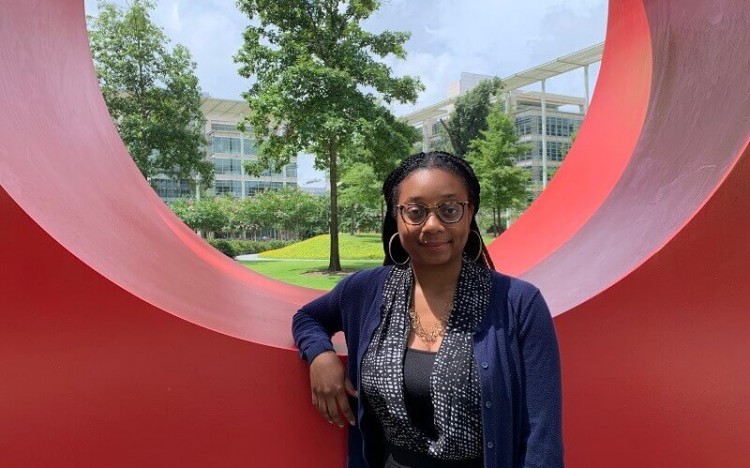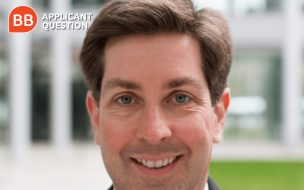She loved her new role. She was earning more and taking on more responsibility, but soon she hit a snag. She found herself managing a massive portfolio of grants and leading grant-making decisions.
The lasting impact of her decisions on the under-resourced communities that the grants served meant Miya felt an enormous amount of pressure to make the right decision.
“In CSR, there’s not the same wealth of readily available data as there is in marketing, so many times, you’re building your own evaluative tools and creating your own methods to measure impact,” she says.
“Simply put, it’s a lot more gray than black and white.”
Miya was led to the MBA at Yale School of Management as a result. She wanted to become better at navigating the ambiguity and operating in the gray. An understanding of how the intersection of business and philanthropy impacts communities was also on her list.
BusinessBecause caught up with Miya, to find out how her MBA is helping her achieve her career goals.
Why did you decide to pursue an MBA at Yale?
While there’s a long list of quality MBA programs, when you’re focusing solely on ones where the intersection of business and society is integrated in its very DNA, that list becomes quite short.
What stood out to me about Yale was that everyone I talked to—from entrepreneurs to people working in investment banking—had a genuine interest on how the decisions they made impact society at large. Then, when I went to welcome weekend and lived my best life, that truly sealed the deal.
What advice do you have for MBA applicants just starting their journey to business school?
My biggest piece of advice would be to reflect a lot on what’s important to you. In fact, this reflection will probably be one of the most time consuming and perhaps at times the most frustrating part of starting your MBA journey.
But, to make the best decision on what’s the right place for you, you have to first understand what’s important to you. What are your nice-to-haves and what are your core values, your non-negotiables?
In my opinion, candidates who are unapologetically themselves stand out. Believe it or not, many people can be chameleons, adapting to blend into whatever environment they’re a part of. Unfortunately, because of historical context, for people of color this skill has been almost necessary for survival.
However, it means that people who don’t switch it up just to play a part are noticeable, true rare gems that have come to be appreciated. Authenticity is refreshing.
What are your career goals?
I don’t know my immediate next steps, but my long-term career goals are to run a foundation or be a chief diversity & inclusion officer, or maybe both. My MBA will help me achieve these goals by teaching me those fundamental skills I mentioned earlier, broadening my horizons with a wider exposure to people, places, and global business challenges, expanding my network, and earning me credibility.
I’ve already started to see many of these benefits, with the most evident being the people. The structure of cohorts and learning teams at Yale and the larger international student body (as compared to other US business schools) has forced me to get out of my comfort zone and develop relationships with people that I may not have otherwise even had the opportunity to meet.
What do you know now that you wish you had known before the MBA?
Finally, having made it through, I wish I understood how much of a beast the GMAT is. I’d heard rumors and people tried to warn me, but of course I didn’t heed them. If I had started taking it seriously and studying consistently earlier, I would have had a much less stressful recruiting path.
What have you learned about topics like CSR, sustainability, and responsible management at Yale?
Nearly all our cases at Yale, no matter what class they’re for, have at least some component to them where we have to think about the societal implications of the various choices a business must make.
Yes, we have cases specifically focused on sustainability, responsible supply chains, and inclusion in the workplace. But, to me, the greatest thing I’ve learned so far is how to approach such broad challenges from several different angles.
In general, what this means is that I’ve learned to see a single problem from multiple lenses, and this skill alone will yield dividends in my future, no matter what exactly that may entail.








